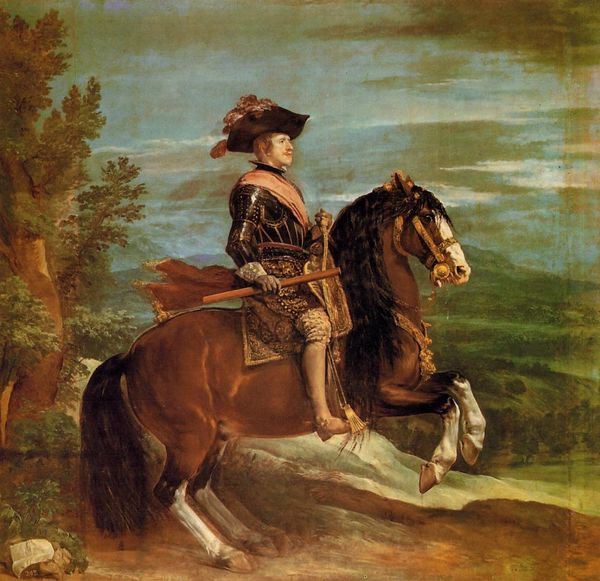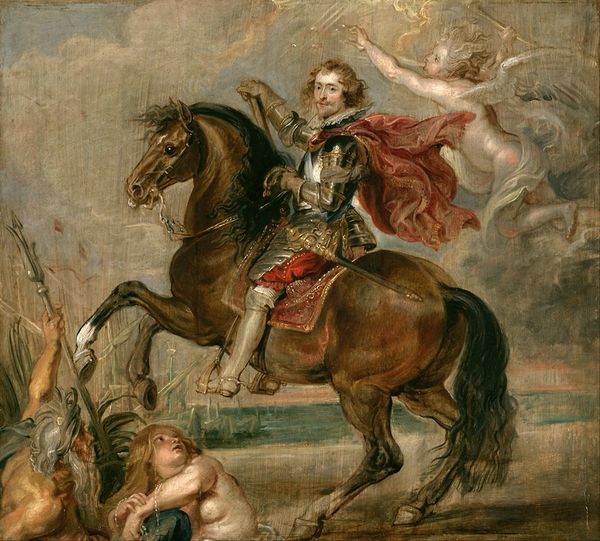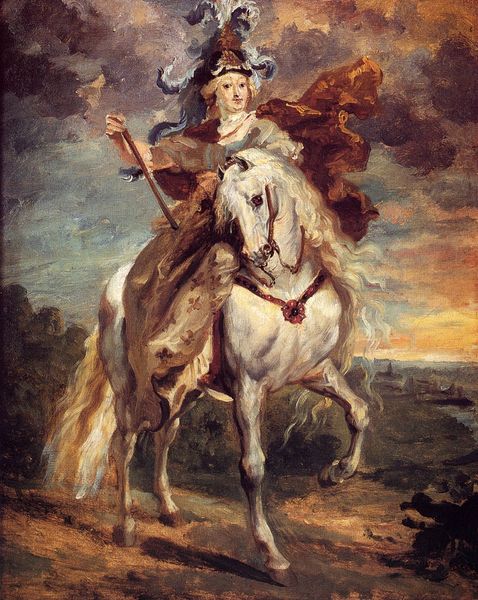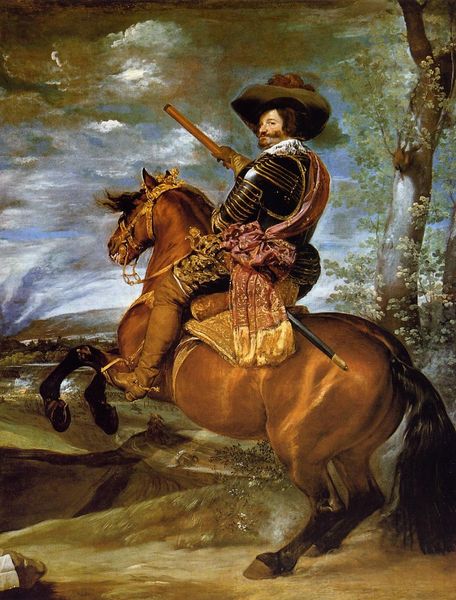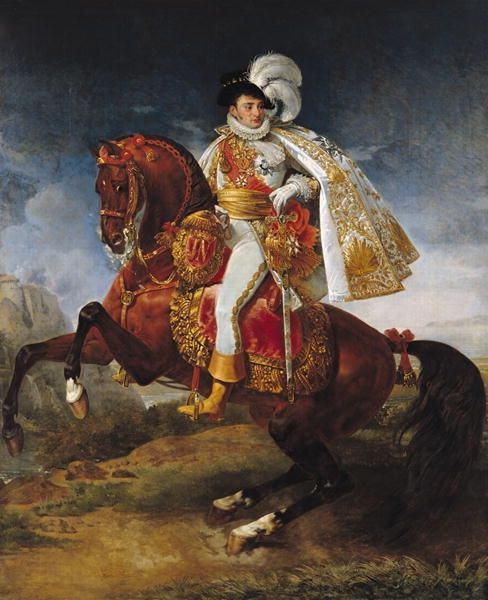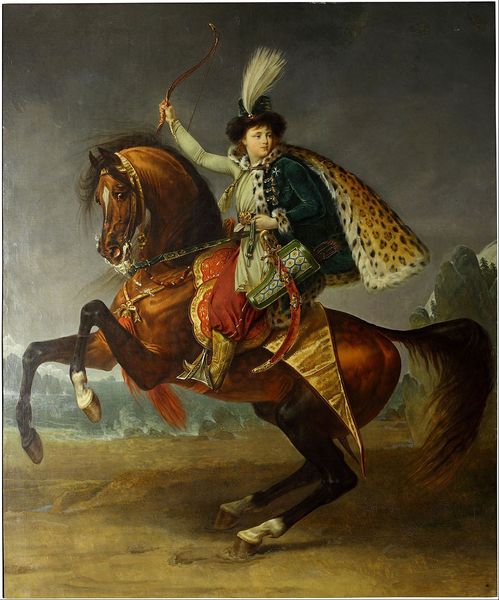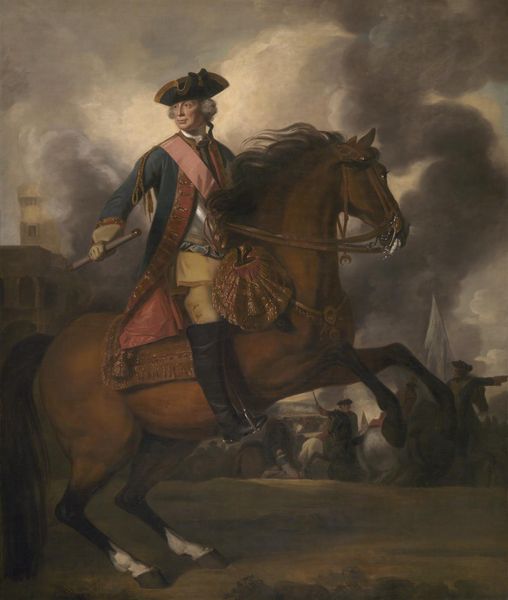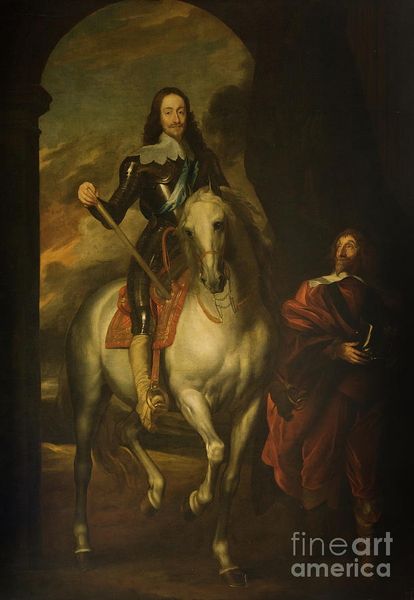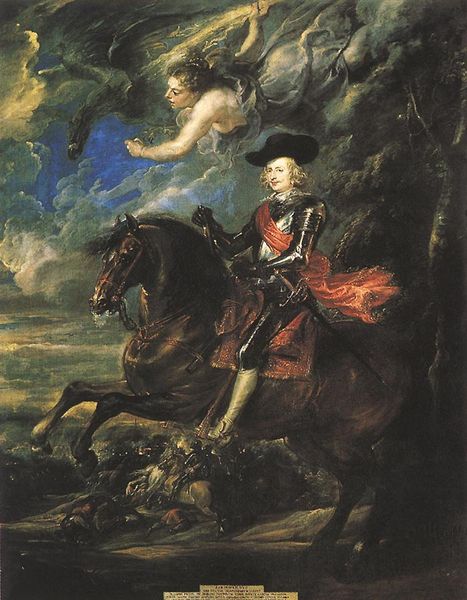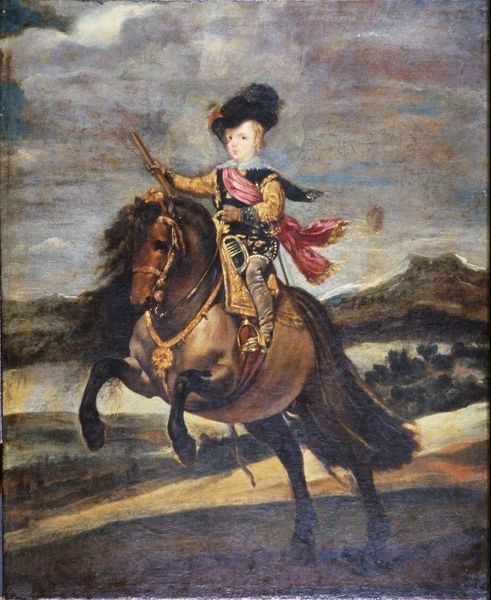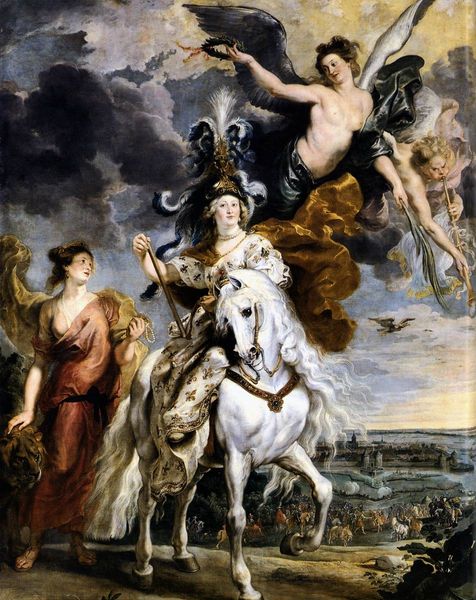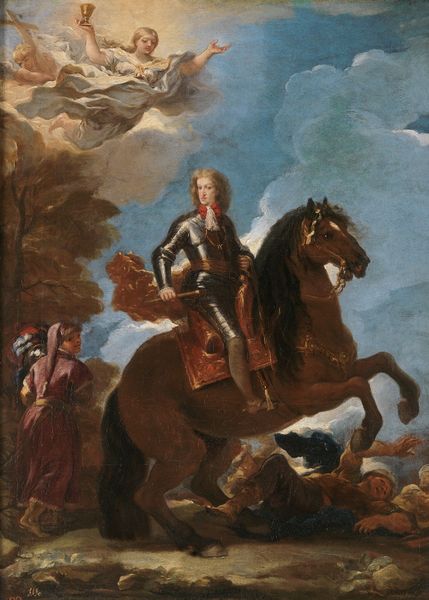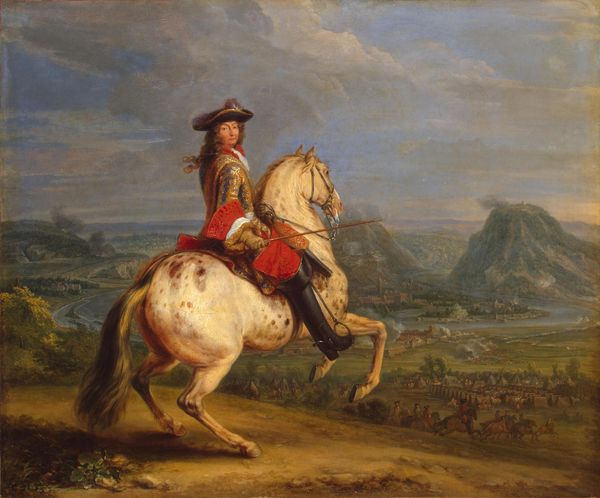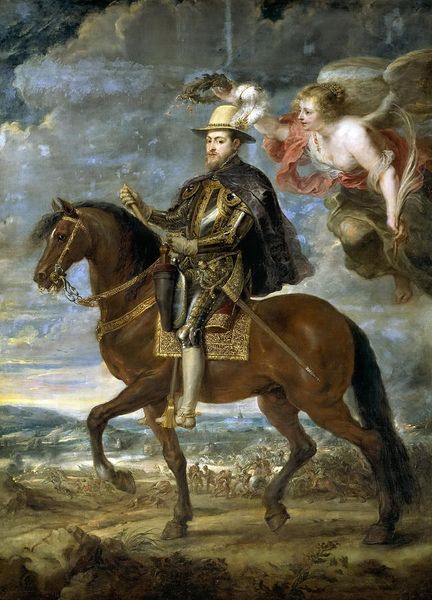
oil-paint
#
portrait
#
allegories
#
allegory
#
baroque
#
symbol
#
oil-paint
#
figuration
#
11_renaissance
#
oil painting
#
famous-people
#
male-portraits
#
history-painting
#
portrait art
#
erotic-art
Copyright: Public domain
Diego Velázquez painted this equestrian portrait of Philip IV, likely in the 1630s, using oil on canvas. The image is an exercise in power, idealizing the Spanish monarch as a triumphant military leader, even though his reign was marked by political and military decline. Court painters such as Velázquez played a key role in constructing a favorable image of the monarchy. Here, Philip is depicted in armor, mounted on a rearing horse, while allegorical figures bestow honors upon him. The imagery draws heavily on classical and religious traditions. The artist uses established visual codes to communicate the king's authority and legitimacy to his subjects. The painting reflects the values of the Spanish court and its attempts to project an image of strength and grandeur during a period of upheaval. To fully understand this portrait, one must consider the political and economic history of 17th-century Spain, consulting archives and other primary sources to reveal the complex social forces that shaped the production of this kind of artwork.
Comments
No comments
Be the first to comment and join the conversation on the ultimate creative platform.
